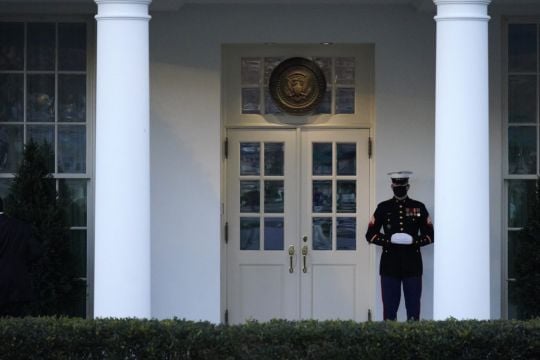The US military has met its goal of reducing the number of troops in Afghanistan to about 2,500 by Friday, a drawdown that may have violated a last-minute congressional prohibition.
The reduction could complicate matters for the incoming Biden administration, which must determine how to handle a Trump administration commitment to the Taliban to remove all US military, intelligence and contractor personnel from Afghanistan by May as a move to spur peace negotiations.
Those talks are in an early stage.
Senior US commanders are sceptical of the Taliban’s stated commitment to peace, although they have said they can accomplish their mission in Afghanistan with 2,500 troops.
Christopher Miller, in his final days as the acting secretary of defence, announced on Friday the 2,500 troop level, saying it brings the United States “closer than ever to ending nearly two decades of war”.
He said the US remains in position to “ensure that Afghanistan is never again used to harbour those who seek to bring harm to the United States of America”.
President Donald Trump, who ordered the reduction in November, when there were about 4,000 U.S. troops in Afghanistan, said Thursday that troop levels in Afghanistan had reached a 19-year low, although he did not mention a troop number.
Last February his administration struck a deal with the Taliban to reduce American troop levels in phases and to go to zero by May 2021.
It is unclear how the incoming Biden administration will proceed.
President-elect Joe Biden, who has advocated keeping a small counterterrorism force in Afghanistan as a way to ensure that extremist groups like al Qaida are unable to launch attacks on the United States, faces a number of questions on Afghanistan.
One is how and whether to proceed with fledgling peace talks between the Taliban and the Afghan government.
Mr Trump in his brief statement alluded to his longstanding desire to get out of Afghanistan entirely.
“I will always be committed to stopping the endless wars,” he said, referring to US wars that have dragged on in Afghanistan since 2001 and in Iraq for much of the period since 2003.
Although senior military officials had cautioned against speedy troop reductions in Afghanistan, Mr Miller announced on Nov. 17 that he was implementing Mr Trump’s order.







